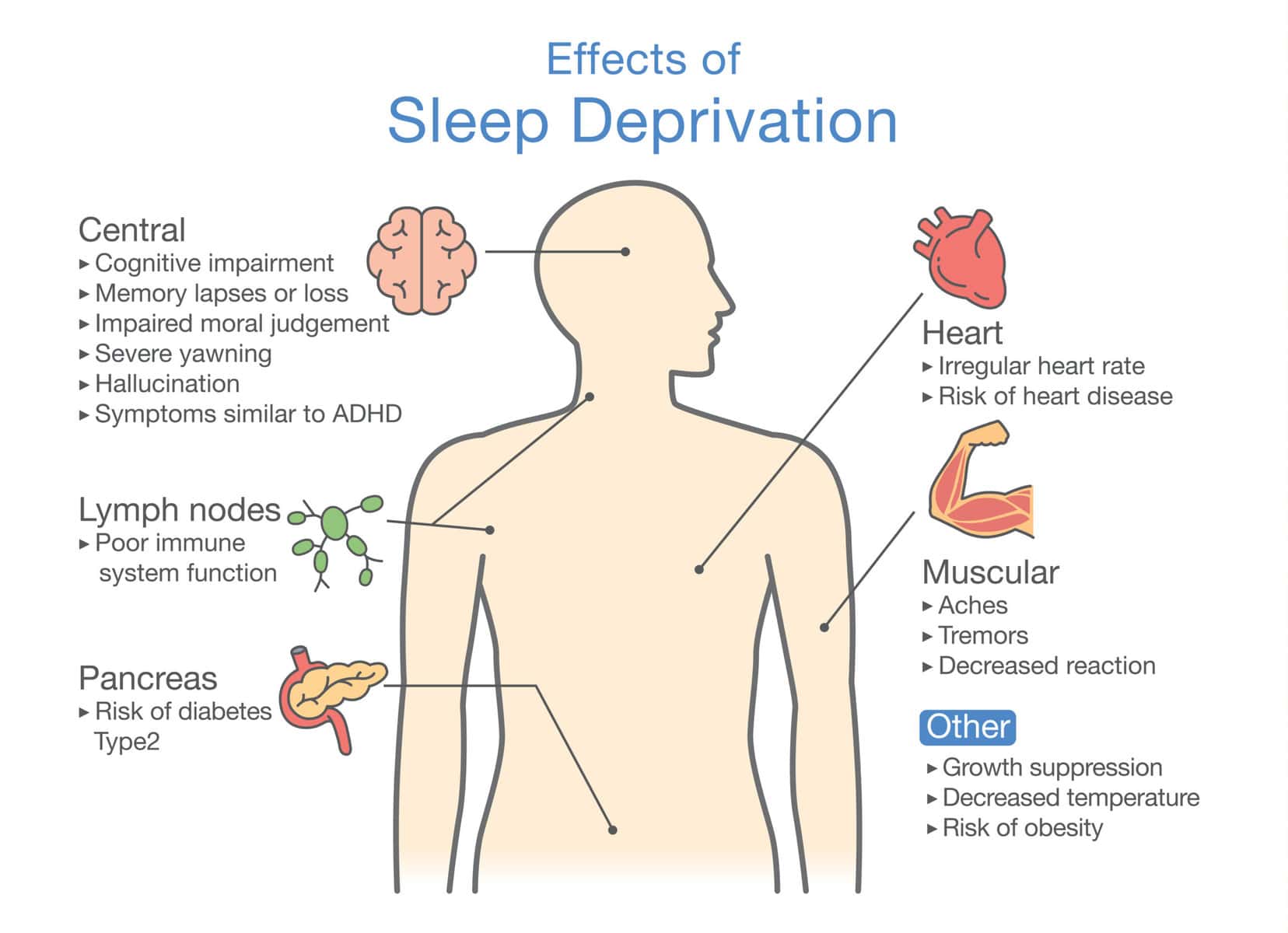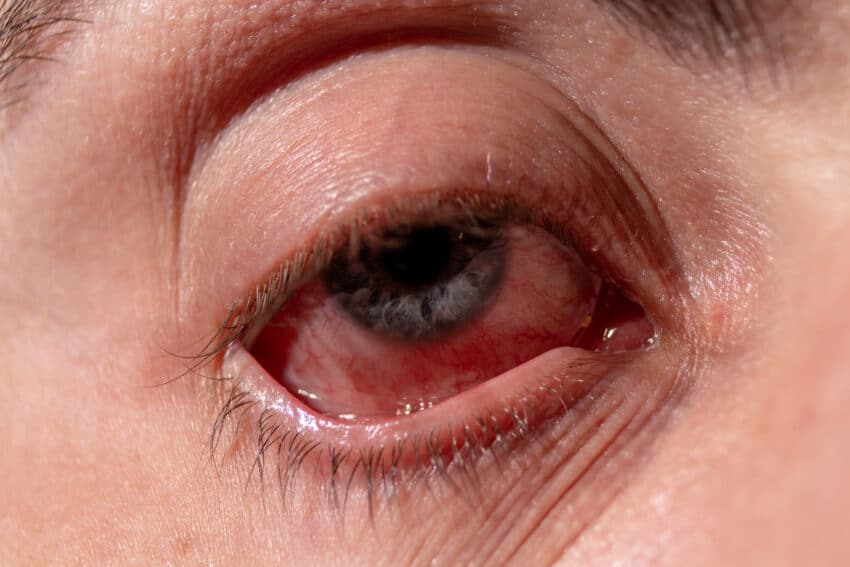In our golden years, sleep is still an essential priority for our health and well-being. But do your sleep needs and problems change with age?
As an aging adult, chronic sleep problems often can greatly reduce your quality of life and ability to perform normal daily activities.
In todays’ post, we will look at the common sleep issues faced by older adults, share practical insights to address them, and uncover the best-kept secrets for restful nights. Let’s begin with………
Table of Contents
Understanding Sleep Deprivation in Older Adults
When I was younger sleep was taken for granted. I could sleep 10 hours and think nothing of it. I could stay out all night if I wanted knowing I would just sleep in the next night. It didn’t seem that impactful or important at the time.
But now as an aging adult it feels much different. Sleep does not come easy and I feel the effects from lack of sleep more strongly than I did then. What changed?
According to the National Sleep Foundation documented research shows 40% to 70% of older adults experience chronic sleep problems. By the year 2030 about 1 in 5 people in this country will be over 65. In the next 25 years there are expected to be approximately 25 million.
While there are changes to sleep as you age, your need for sleep does not become less and sleep problems are not a given expectation of aging itself. Rather, the lack of sleep is often caused by other health conditions we accumulate as we age.
Why do the elderly have trouble sleeping at night?
Sleep disturbance is more common in older adults because of variety of factors and women in particular are more likely to report aging-related sleep problems.
The most common causes why the elderly have trouble sleeping at night are:
- Changes in Circadian Rhythm – Our internal body clocks modify and a natural shift in the sleep-wake cycle takes place as we age. We tend not to sleep as long or as deeply as we used to and wake more often during the night. It also may take longer to fall asleep.
- Pain – Many older people struggle with sleeplessness due to pain or discomfort. You may be unable to find a comfortable sleeping position that doesn’t ease the hurt or worse increases it. The result here is not only sleep deficiency but less sleep can lead to more pain.
- Nighttime urination – Affecting more than 50% of older adults after age 50, nighttime urination, or nocturia, becomes more frequent as you age because of changes to your urinary system and other health conditions. This makes for waking more often at night.
- Health conditions – chronic health issues we develop through our life such as diabetes, arthritis, or respiratory disorders that can cause pain or discomfort that disrupt sleep.
- Sleep disorders – Sleep disorders in the elderly, such as insomnia, are more common than you may think. In addition, sleep apnea may be as high as 70% in older men and 56% in older women. Restless legs syndrome and REM sleep behavior disorder are also found in increasing numbers in older adults.
- Medication side effects – As we get older we can develop many age-related ailments. The medicines we take for these health conditions can interfere with sleep. The medications that can affect sleep may be over the counter or prescribed by your doctor. Ask your doctor if your medicines might be the cause of sleep problems. He may suggest changes to help.
- Environmental – A noisy neighborhood or uncomfortable bedroom can make for an uneasy sleep. Many people become more sensitive to their surroundings and often sleep lighter as they get older. A little noise or discomfort may have more impact than it once did.
- Psychological Factors – The stress of certain life transitions can interfere with sleep. Grief from the loss of a loved one or the transition to retirement can be stressful leading to anxiety or depression.

Consequences of lack of sleep in the elderly
Sleep deprivation can be detrimental, affecting our physical, mental, and emotional well-being. You may seem like you’re not as sharp as you used to be. It may just be due to a lack of sleep. Older adults still need 7-9 hours of sleep each night.
If you don’t get enough sleep you may:
- Feel daytime drowsiness – Feeling tired during the day is not normal just because you are getting older, as many people think. Excessive daytime sleepiness is experience by about 20% of older adults. This can be a symptom of an underlying health condition such as sleep apnea, cognitive impairment, or cardiovascular issues.
- Be irritable
- Have memory problems – Many older people worry that being forgetful is a sign of Alzheimer’s disease. There are many other reasons for memory issues. Sleep deprivation affects your ability to remember things. Your brain needs sleep to consolidate memory. Without this it has difficulty “looking it up” and recalling it when you want. The file just seems to be missing or out of place.
- Lack focus – Lack of sleep lowers your alertness and ability to concentrate. You may find it hard to pay attention or react adequately.
- Feel depressed – This can be a two-way street. People with insomnia have a higher risk of depression. 75% of people with depression have trouble sleeping.
- Have more accidents and falls – you may be more prone to accidents because you feel drowsy
Empowering Yourself for Better Sleep
The good news is that there are several strategies and lifestyle changes that can significantly improve sleep quality.
Sleep hygiene for the elderly
Sleep hygiene is important at every age whether you are young or old.
- Keep a Consistent Sleep Schedule: Go to bed and wake up at the same time each day, even on weekends, to regulate your body’s internal clock. This helps your brain to know when its bedtime.
- Have a Sleep Inducing Environment – Your bedroom should be a sanctuary at the end of the day. Make it quiet, dark, and at a comfortable temperature where you will feel like escaping the activities of the day and wind down.
- Mindful Eating and Hydration – Avoid heavy meals, caffeine, and alcohol close to bedtime to reduce disruptions in sleep.
- Daily Physical Activity – Engaging in regular exercise promotes better sleep, but avoid vigorous workouts close to bedtime.
- Unplug Before Bed – Limit exposure to electronic devices with blue light, as it can hinder the production of melatonin, the hormone that makes you feel drowsy to help you fall asleep.
- Wind down – It helps to follow a routine of winding down. Your brain will get trained to know sleep time is coming. Reading a book or listening to relaxing music for example. Any calming activity you choose is good.
- Relaxation Techniques – Some people find meditation, deep breathing, or gentle yoga can alleviate stress and promote relaxation before bedtime.

How to Increase Deep Sleep in the Elderly
Are you finding it harder to feel that deep satisfying sleep as you get older? Finding a better way to sleep may be as simple as making a little noise. That’s right. Research shows that pink noise like falling rain, wind blowing through the trees, ocean waves softly breaking on the shore or a flowing stream increased slow wave activity in the brain. Slow waves, associated with deep sleep increased with the use of pink noise.
Conclusion
As aging adults, we still need the restful slumber we crave to thrive in this phase of our life. Be mindful of how your daytime activities and behaviors impact your sleep. Eat right, stay active, get plenty of daylight early in the day and keep a regular bedtime. And don’t forget to make your bedroom a nighttime sanctuary for rest. Sleep deprivation may present challenges, but with the right knowledge and mindset, we can overcome them together.
Sleep well……..Goodnight!

The information in today’s post is for educational and informational purposes only and is not intended to be a substitute for professional medical advice, diagnosis, or treatment. When you have questions regarding your health you should seek the advice of your health care provider.
